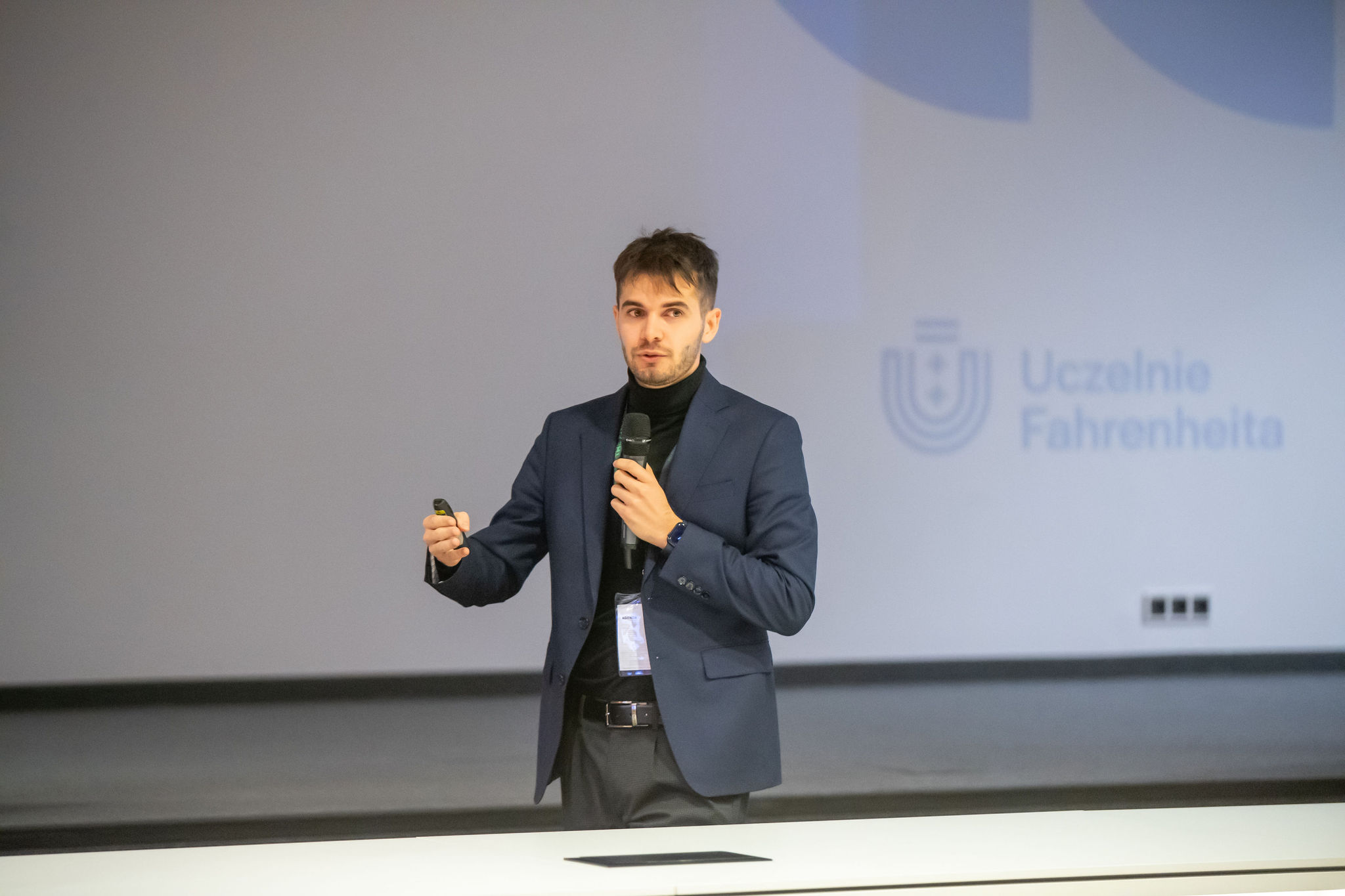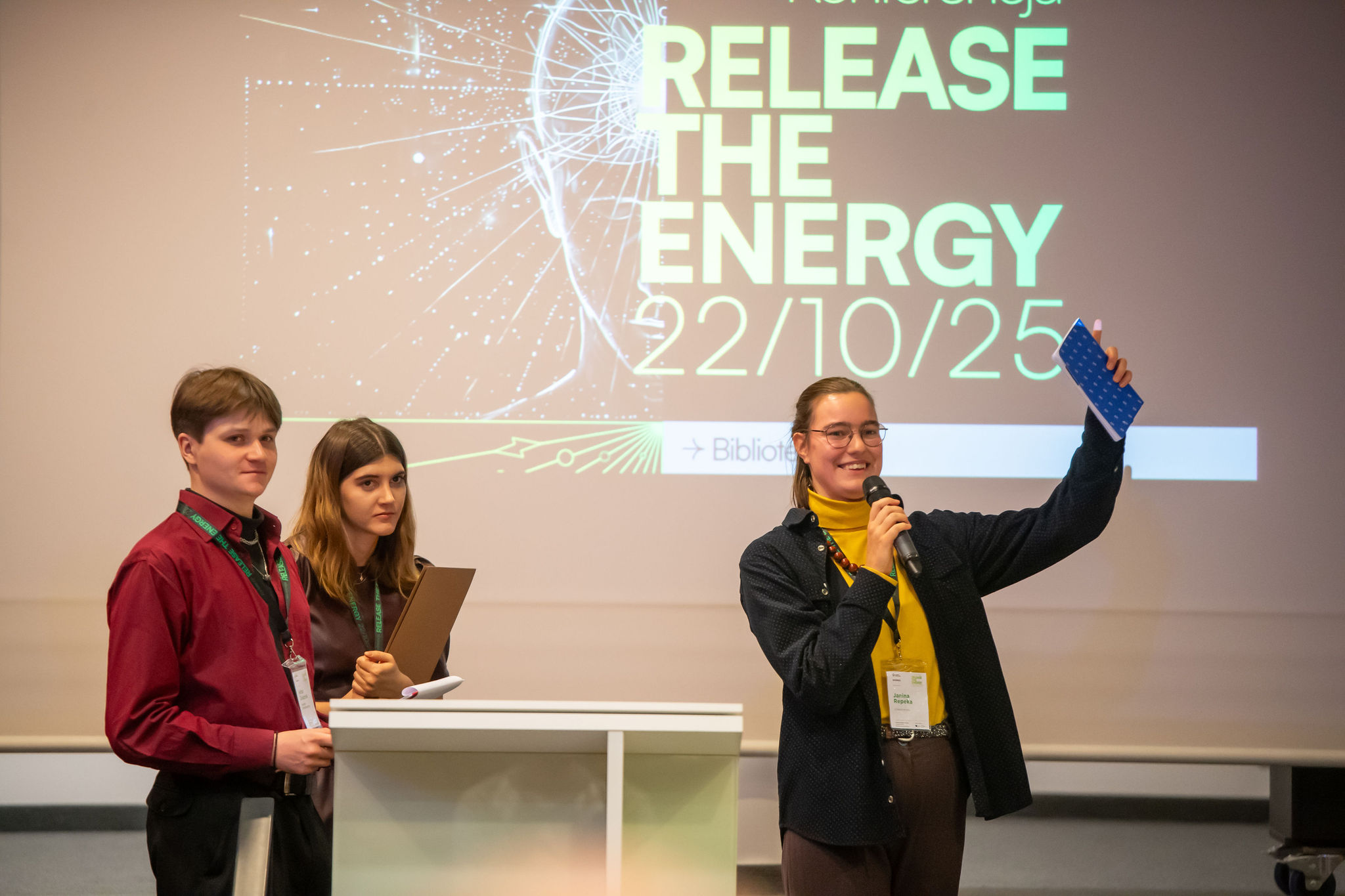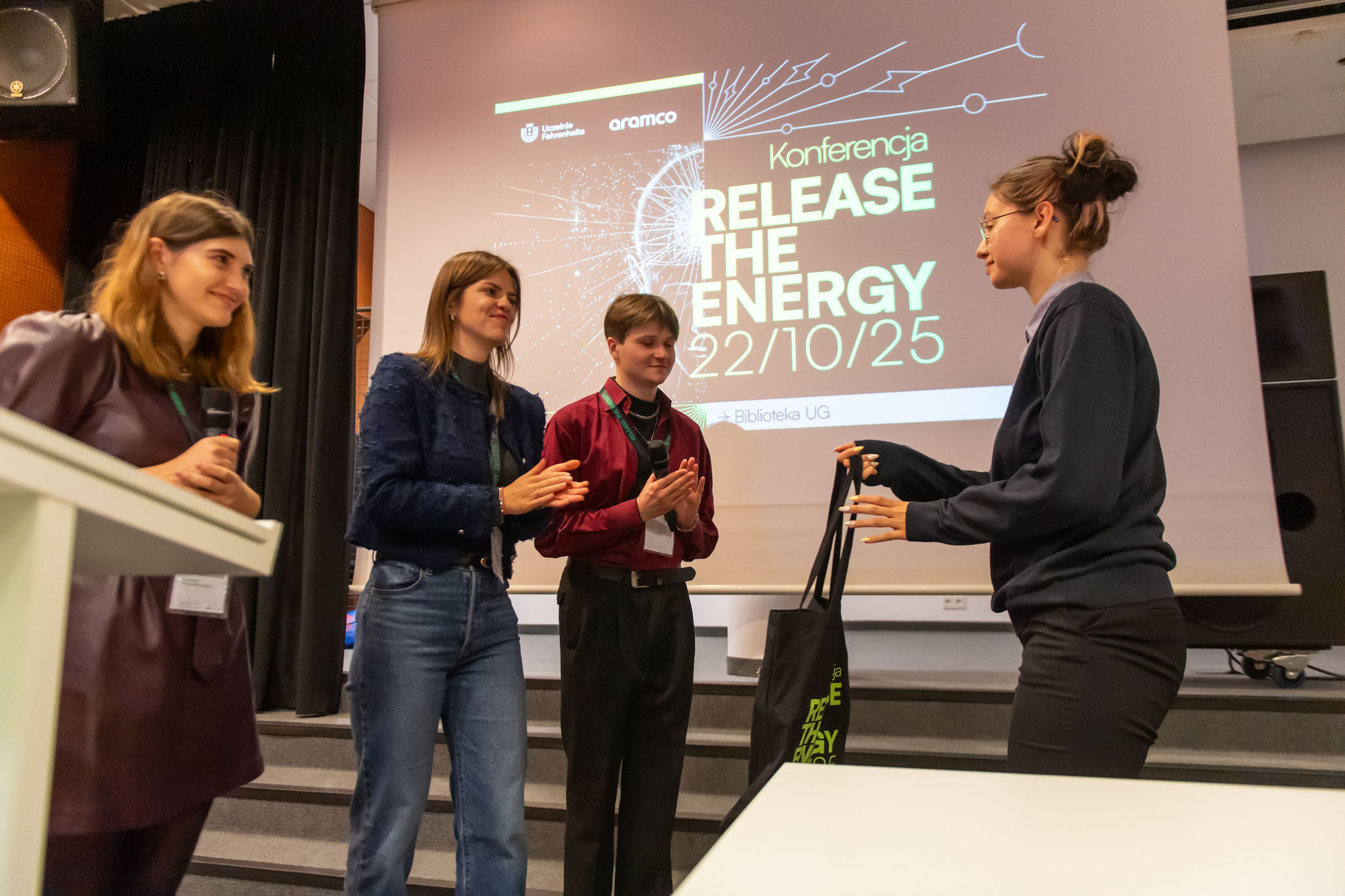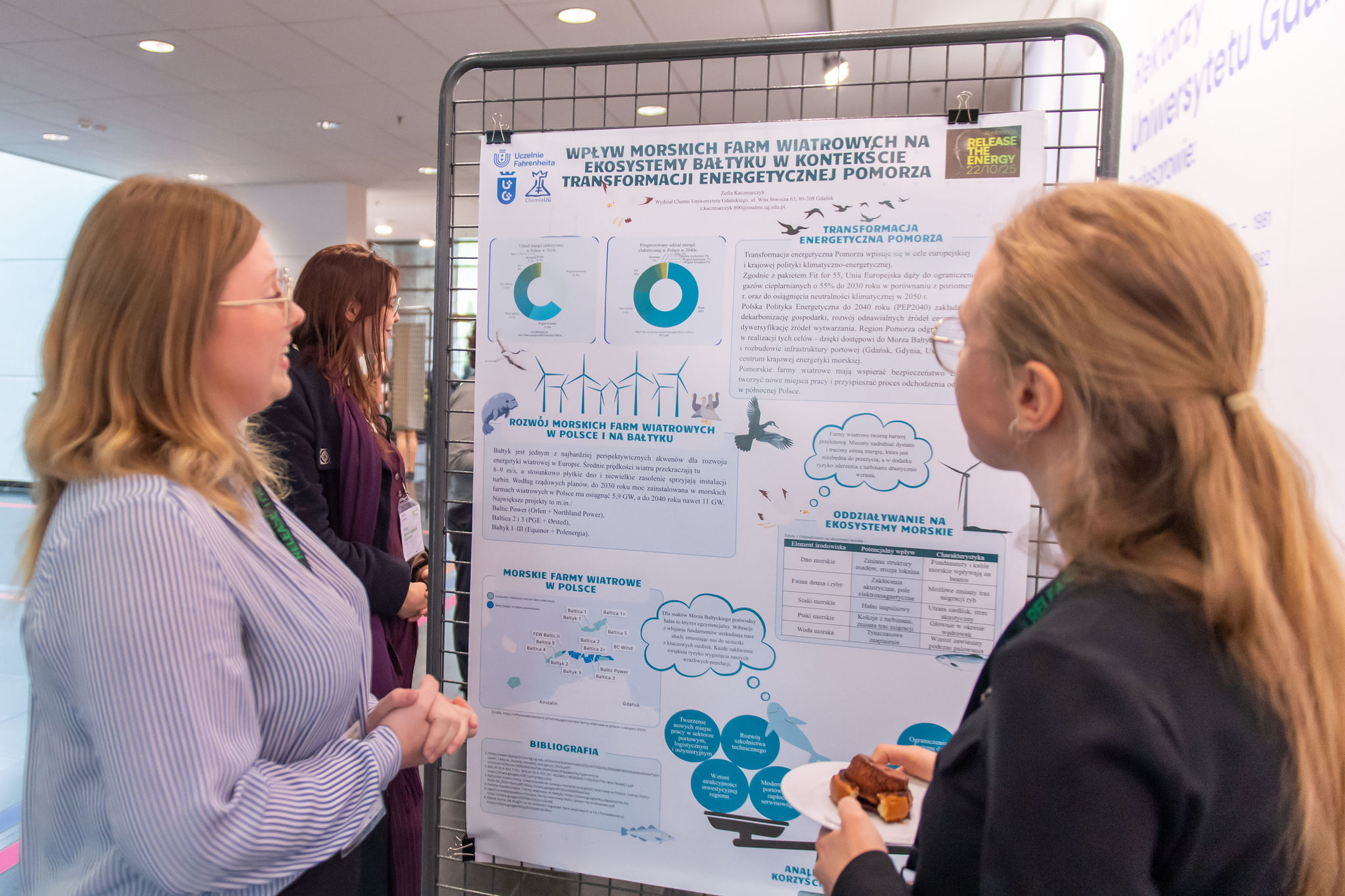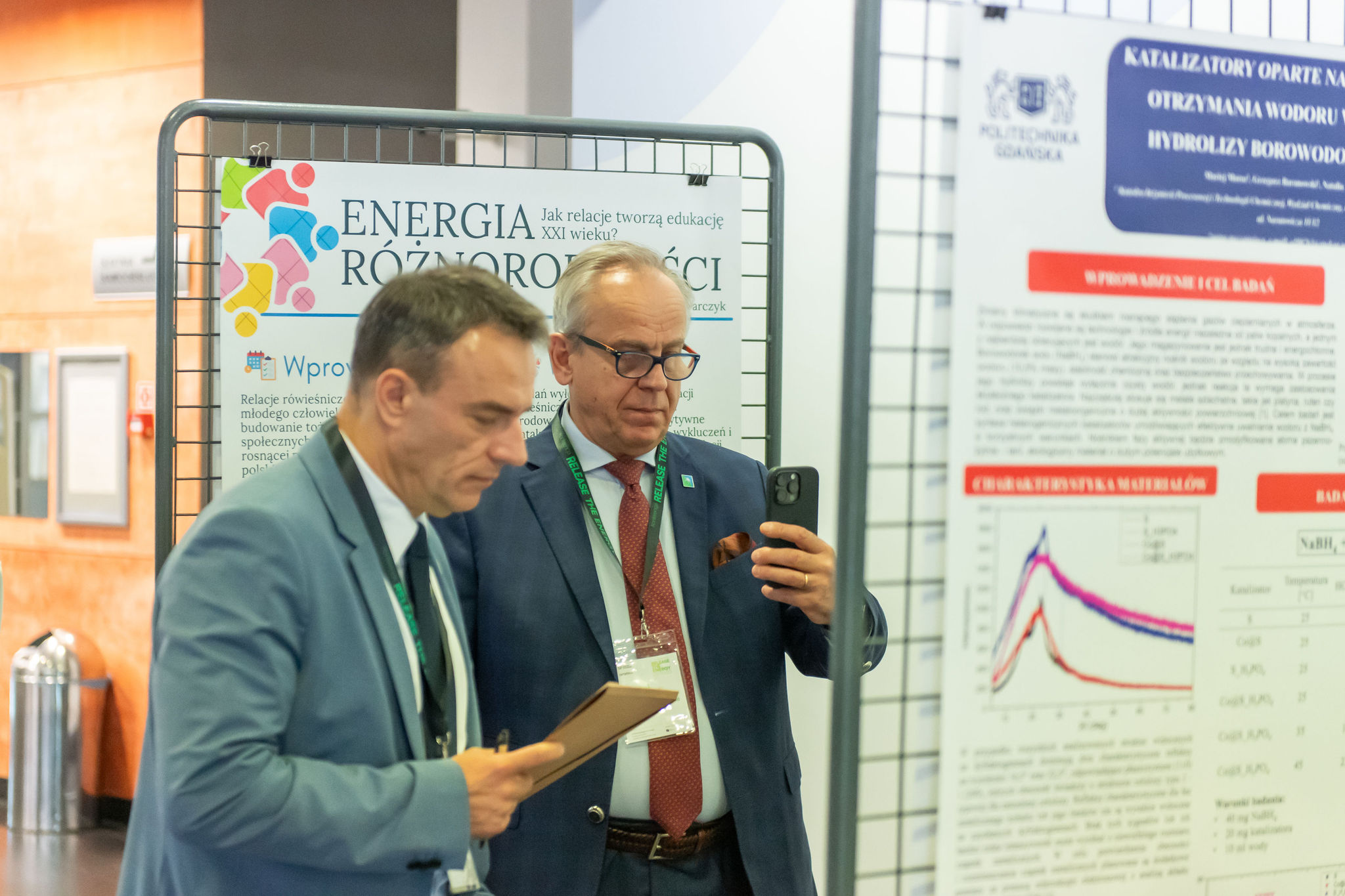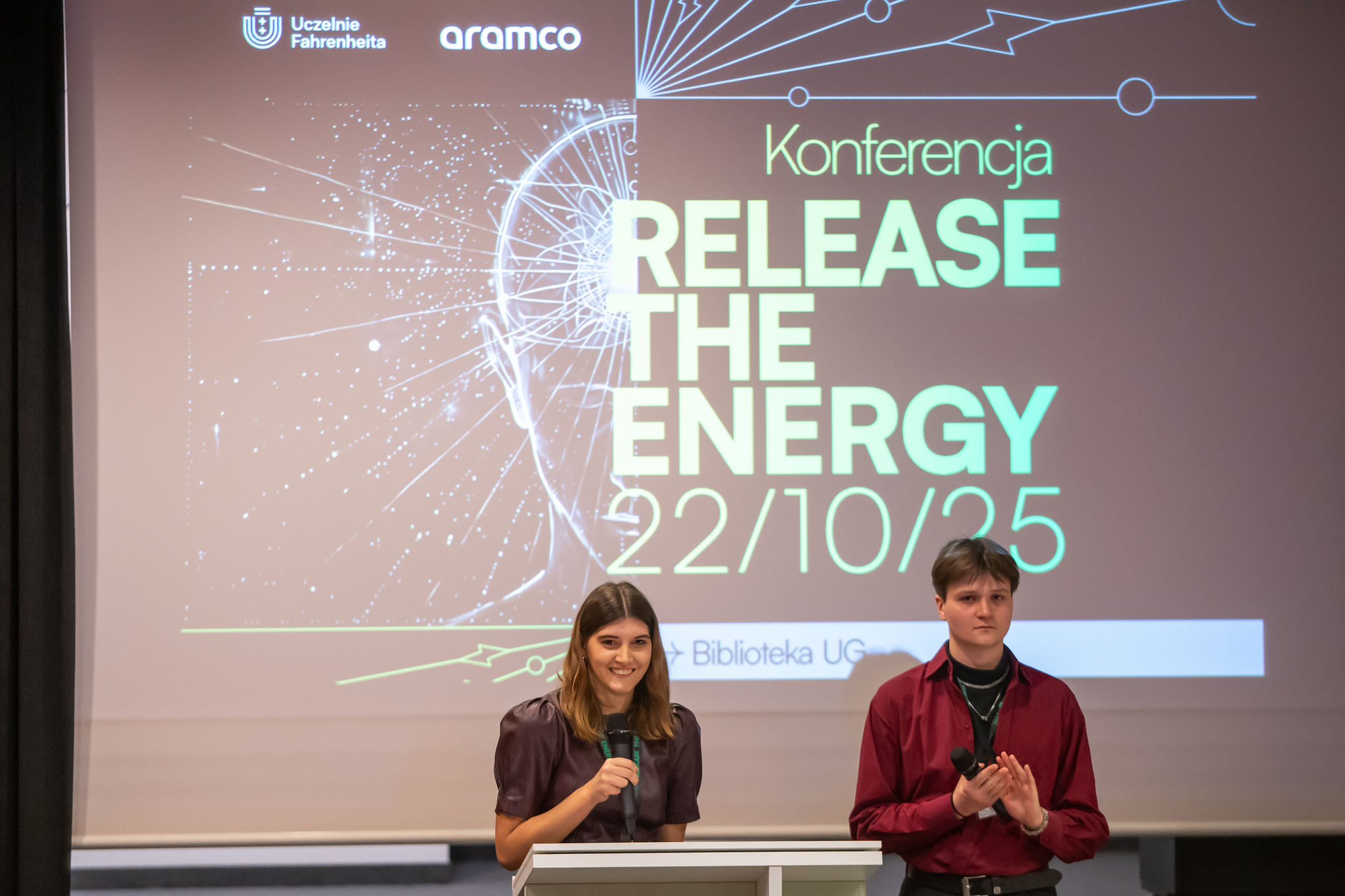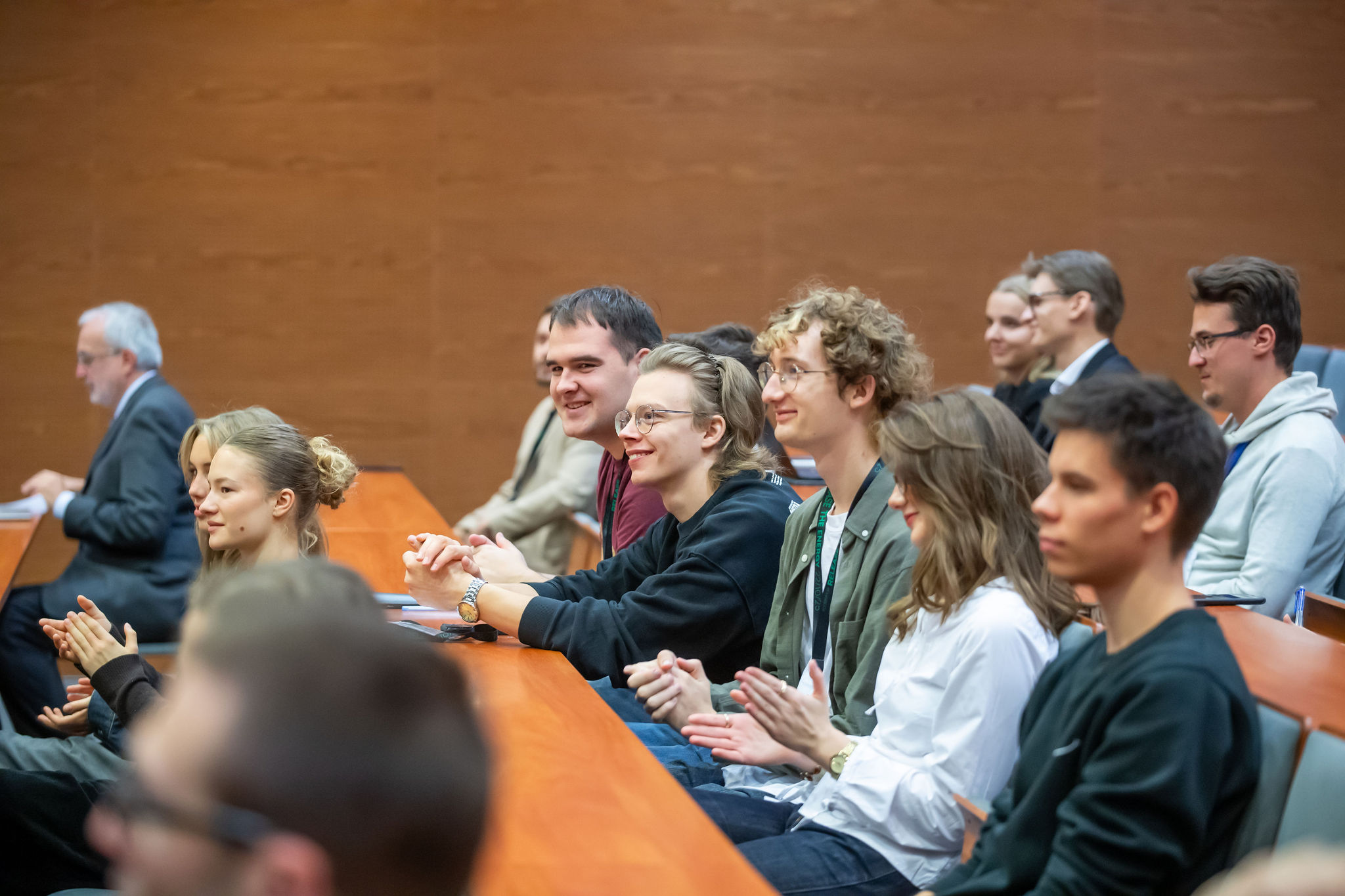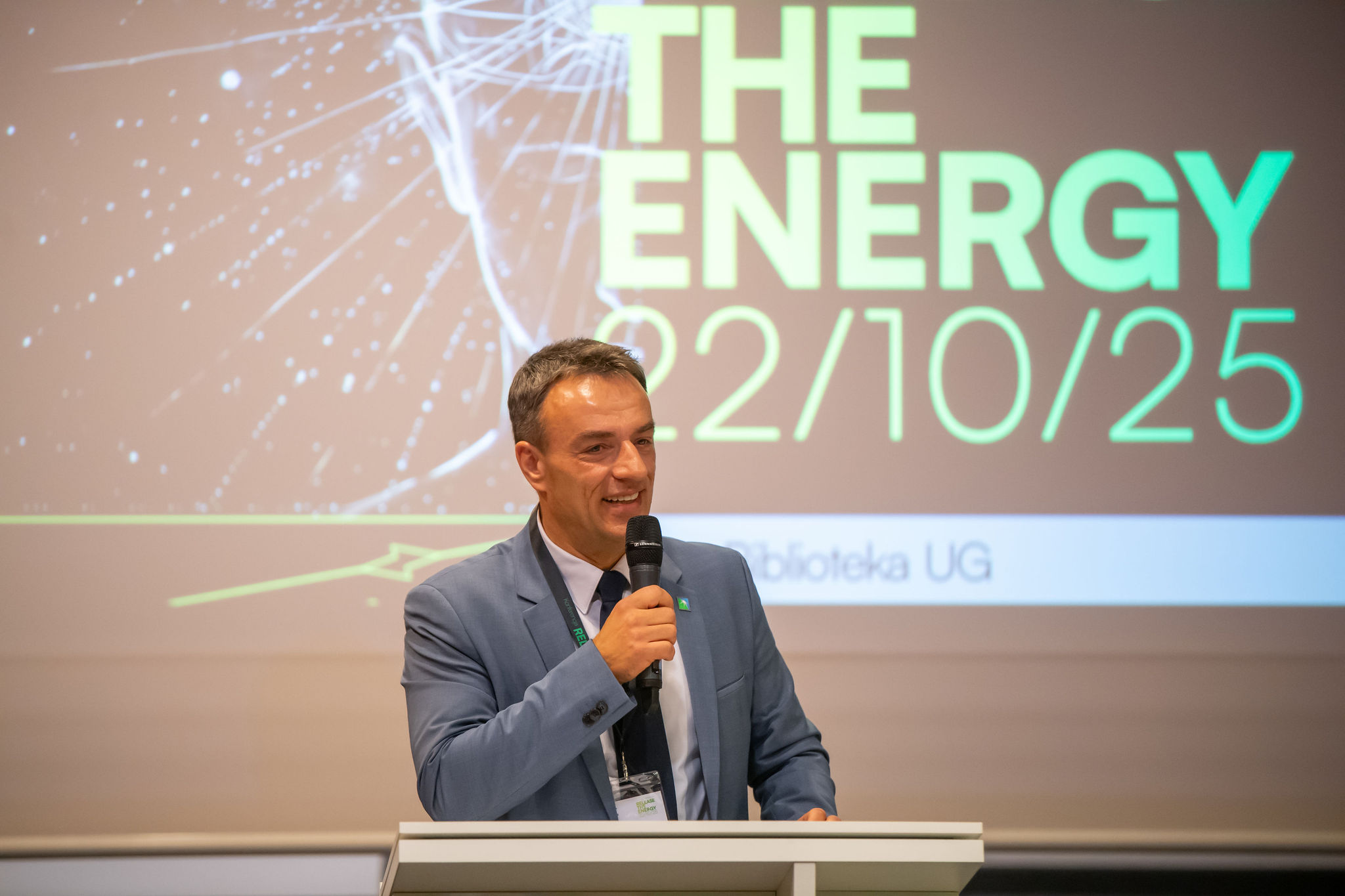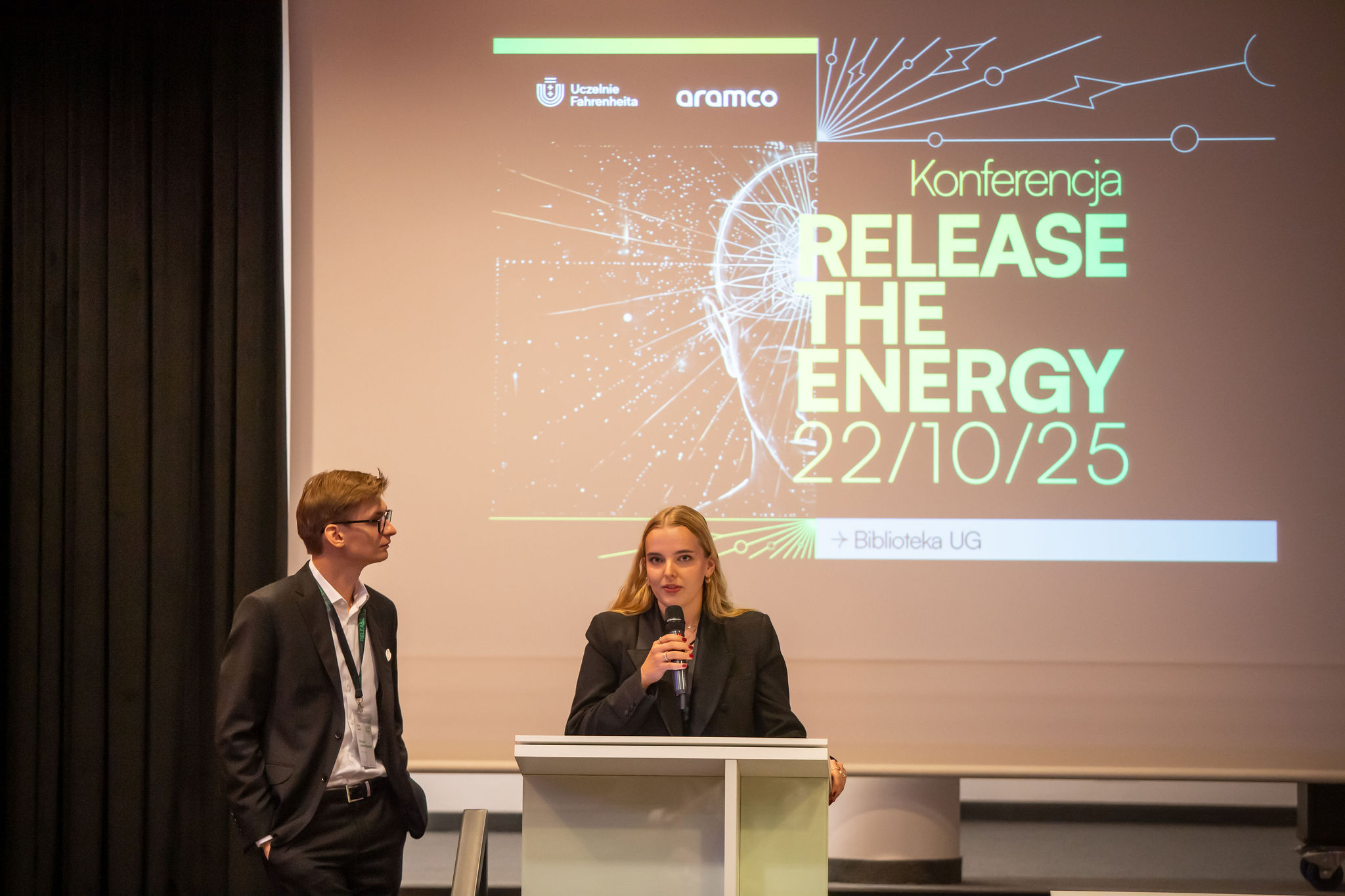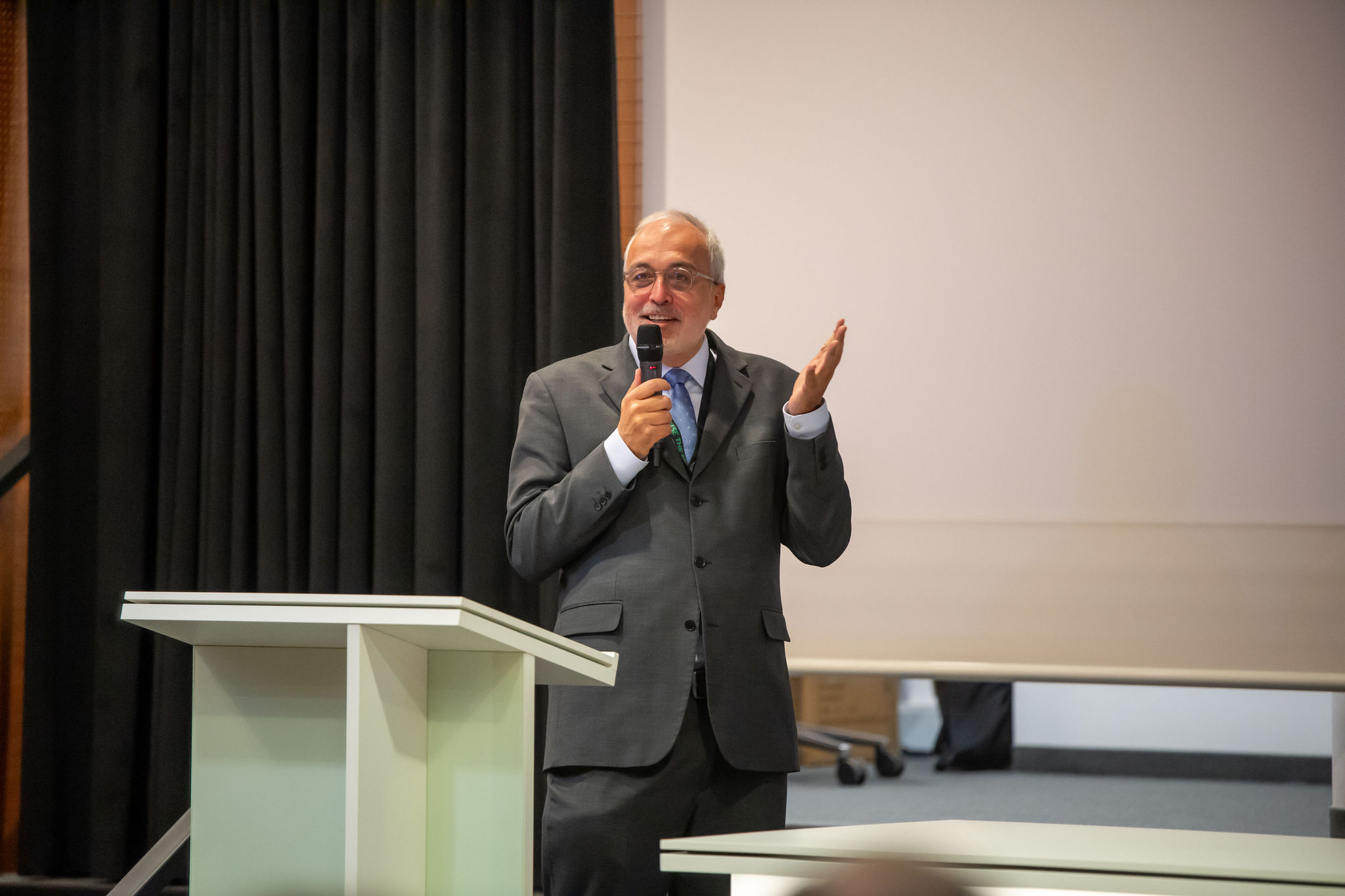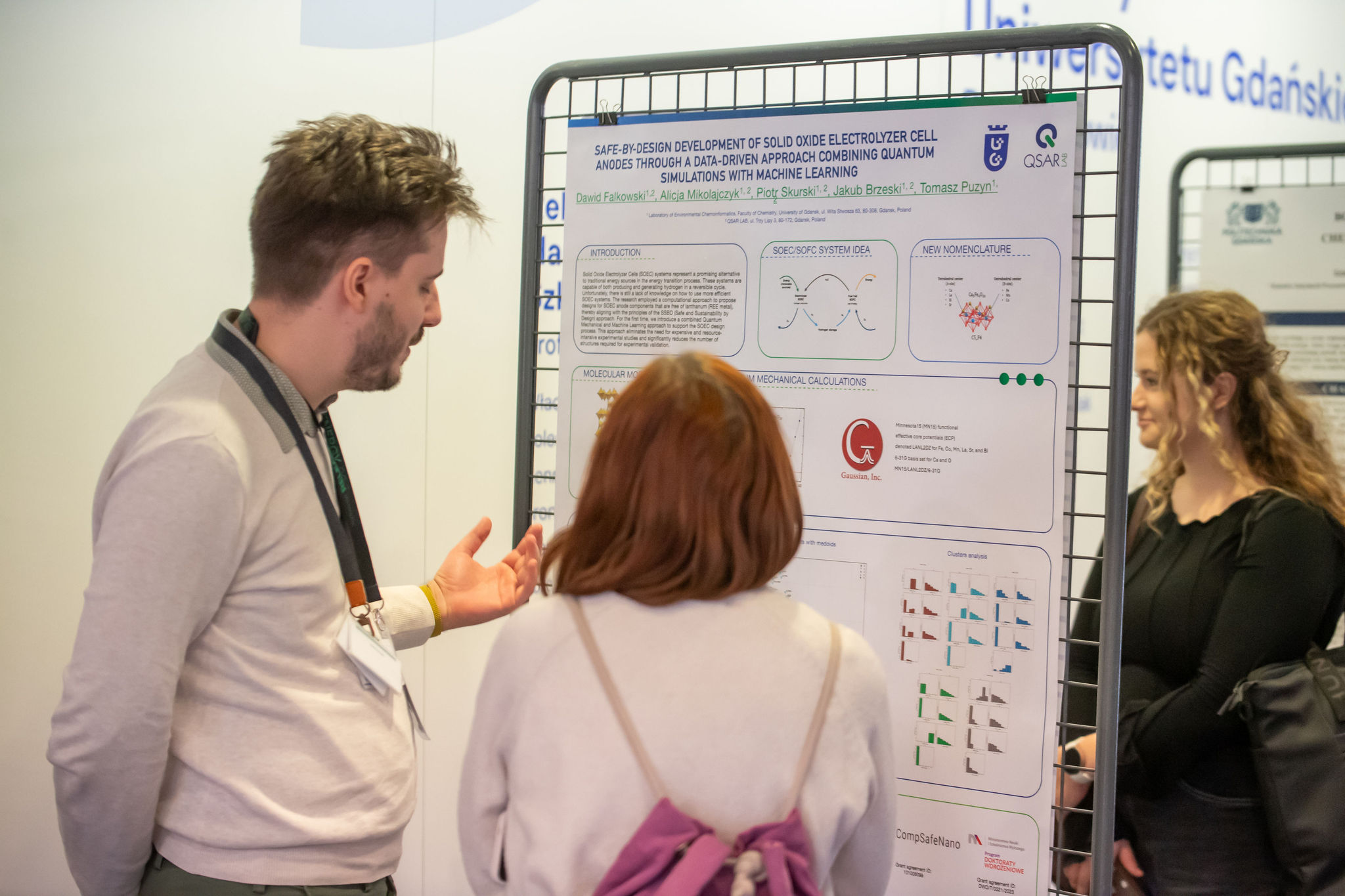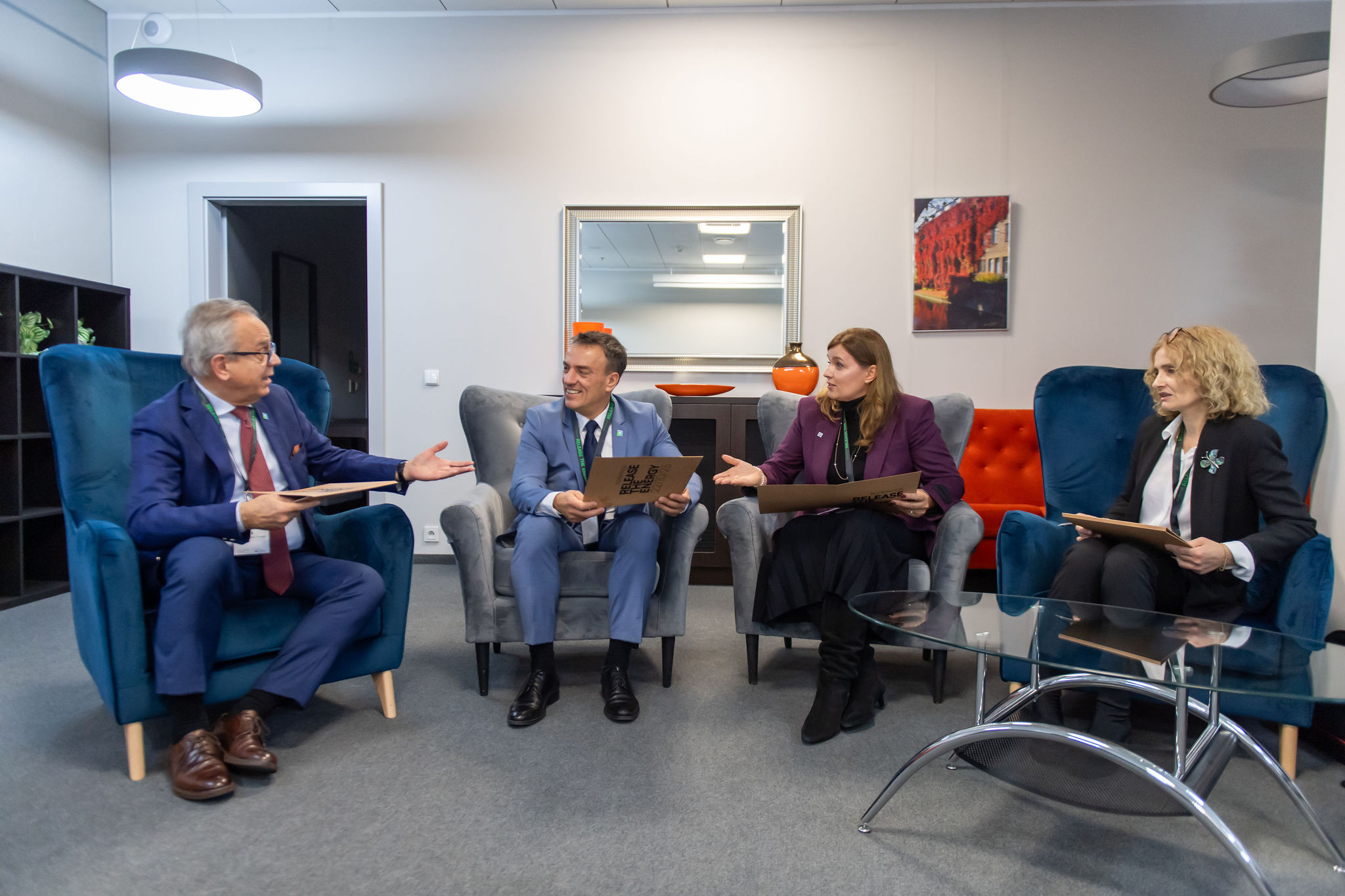“Release the Energy" 2025 – students on energy transition
On the occasion of the World Energy Day, the second edition of the interdisciplinary student conference “Release the Energy” took place on 22 October. The event brought together undergraduate and Ph.D. students as well as the representatives of the academic community to discuss the broad concept of energy and the key challenges related to the global energy transition.
As the energy transition sector continues to accelerate, the young generation of researchers and students plays a crucial role in shaping its future. It was them who, during “Release The Energy”, filled the halls of the University of Gdańsk Library on Wednesday to debate the multifaceted significance of energy. Participants addressed vital issues within the field, including the development of renewable energy sources, technological innovations, as well as the political, environmental, and legal aspects of the ongoing transformation in the energy sector.
The guests were welcomed by the Vice-Rectors for Student Affairs of two universities: Prof. Urszula Patocka-Sigłowy, Associate Professor at the University of Gdańsk, and Barbara Wikieł, Ph.D., Associate Professor at the Gdańsk University of Technology.
Today, you will reflect on what energy truly is – how to release it and how to explore it in its full scope. On the one hand, as a physical phenomenon, but also as the release of creativity and responsibility, said the Vice-Rector for Student Affairs at the University of Gdańsk. – The exchange of ideas taking place today is also a wonderful example of how we can embody the idea of the Fahrenheit Universities.
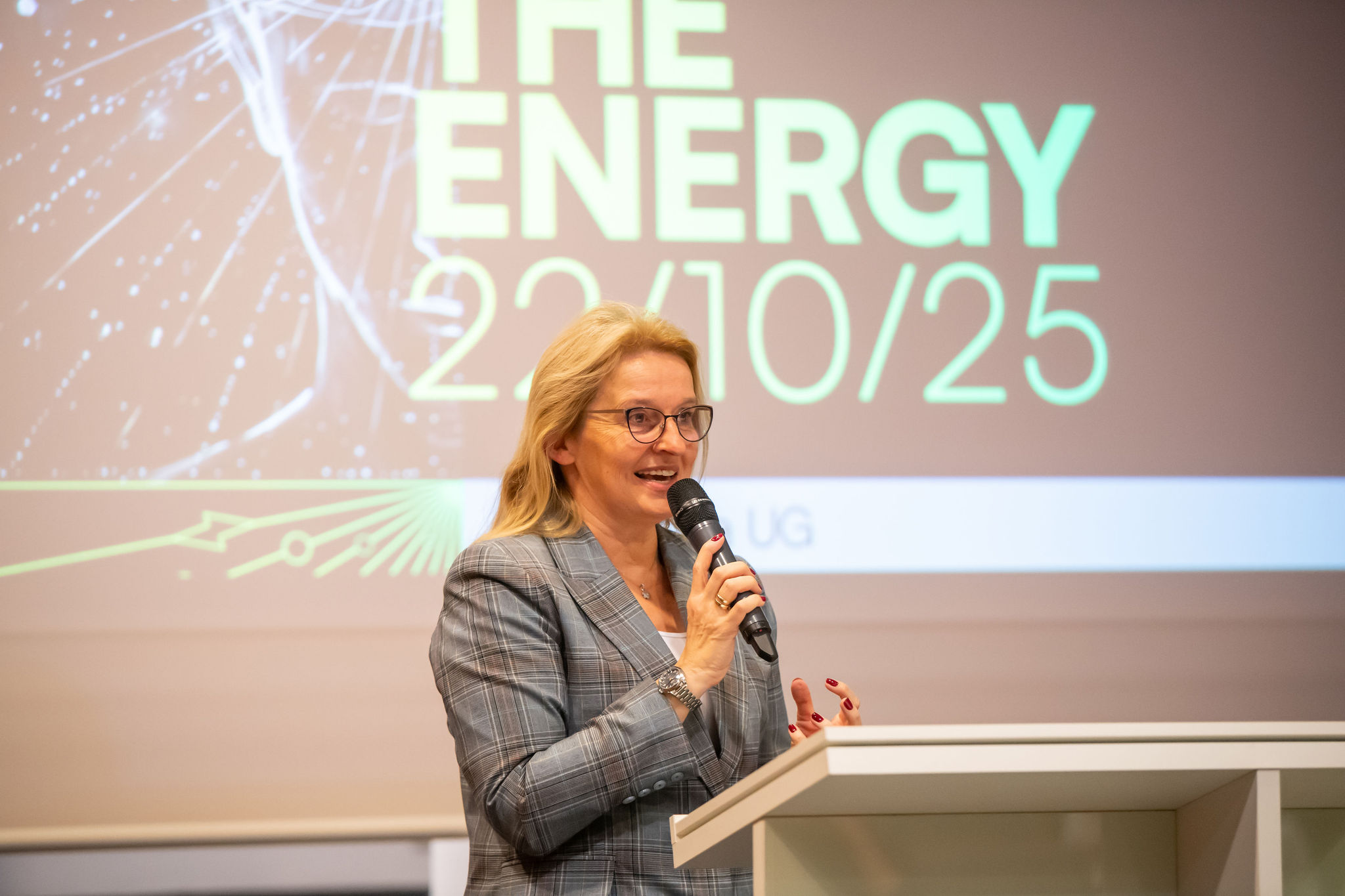
I am glad that we are continuing an initiative launched last year, then hosted by the Gdańsk University of Technology. Especially since this is an event organised by students, for students – emphasised Barbara Wikieł, Ph.D.
Next, Katarzyna Zygmunt, Deputy Director of the Fahrenheit Universities, reminded attendees of the ideas that inspired the creation of this interdisciplinary conference. Jarosław Kobus, President of the Management Board at Aramco Fuels Poland, emphasised that throughout history, Gdańsk has become a hub of scientific innovation, a city of renowned scholars – and should continue to serve as an inspiration for future generations.
The first presentation was delivered by an international guest, John Henn of Aramco Europe, who spoke about turning data-driven insights into concrete actions. Following the keynote address, the stage was handed over to students, who opened a panel discussion dedicated to policy, law, and the challenges of the ongoing energy transition. The first speaker, Mariusz Sadłowski, opened the discussion by asking whether the rapid growth of renewable energy sources can also generate new problems – highlighting the political and institutional dualism that often accompanies this development. Next, Filip Kaszubowski drew attention to the fact that, despite record levels of renewable energy production, energy bills continue to rise. His presentation focused on potential strategies to reduce the costs of the energy transition. Marta Kowaliszyn and Kacper Lewandowski then explored how technology law is (or is not) keeping pace with innovation in the energy sector, including the use of AI and blockchain applications. The final presentation of the session was delivered by Paula Tęcza of the Pomeranian Special Economic Zone (PSSE), who discussed how the PSSE supports Poland’s energy transition. An additional highlight of the conference, provided by one of its partners, was a quiz offering participants a chance to win wireless headphones.
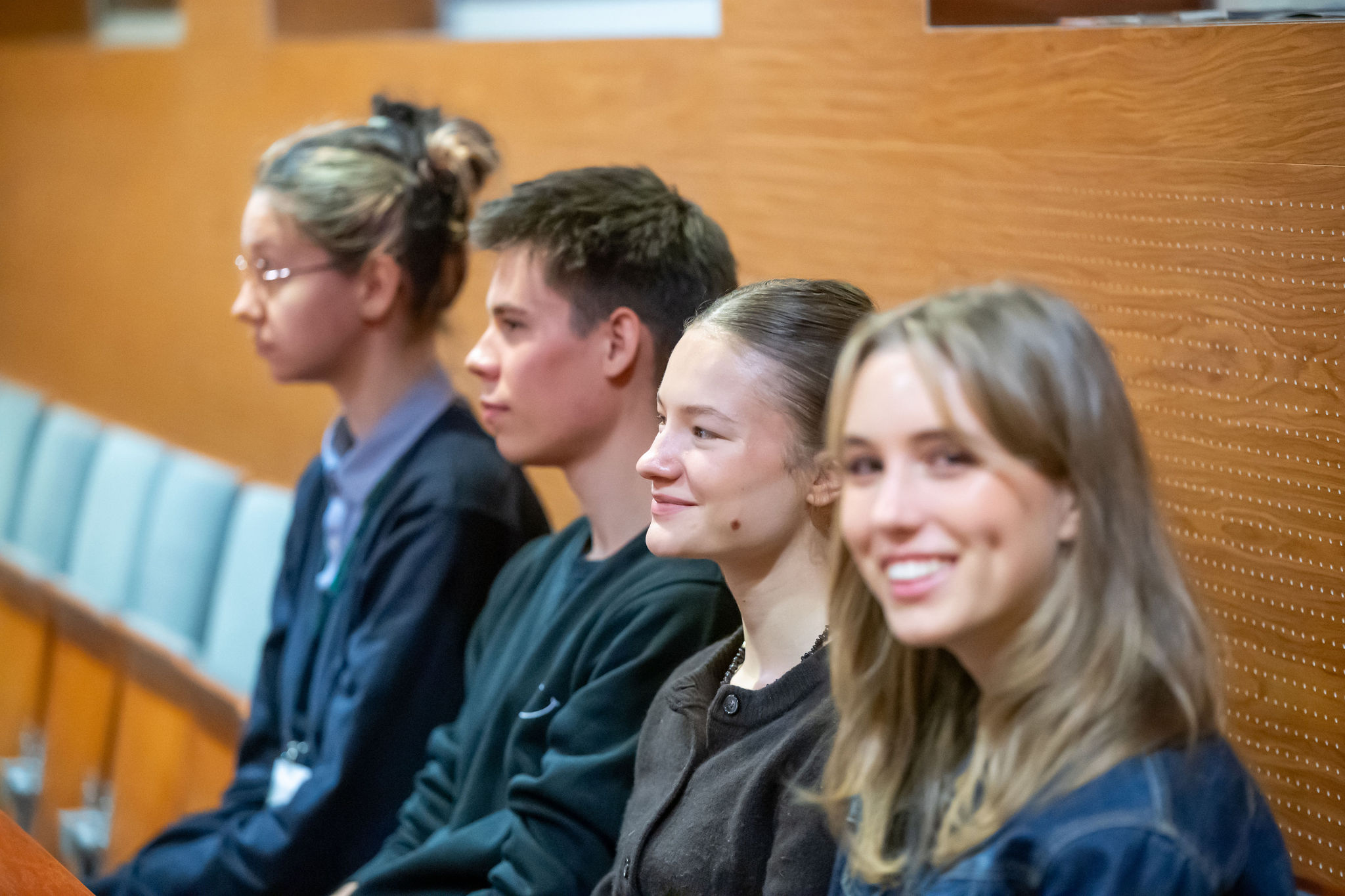
The second part of the conference featured a panel focused on the energy market and its broader impact on society and the environment. Alicja Trawińska presented the results of environmental impact assessments of wind turbines, examining their effects on local ecosystems and the well-being of nearby residents. Szymon Niewdana then outlined how the development of renewable energy sources is reshaping the energy market – from price challenges to innovative solutions. In the third presentation, Janina Repeka explored the social dimension of the energy transition, analysing the rise of climate movements and ongoing debates over which energy sources should form the foundation of our future.
The final block of the conference was dedicated to energy in the service of science and education. Alicja Szostak addressed whether an investment in CERN brings measurable benefits, while Emilia Walaszek demonstrated how initiatives such as SciClub can unlock students’ potential and foster the skills needed for the future. At the conclusion of the main session, Prof. Piotr Markuszewski of the Institute of Oceanology of the Polish Academy of Sciences presented his research on processes occurring at the interface between the sea and the atmosphere, examined in the context of the energy sector.
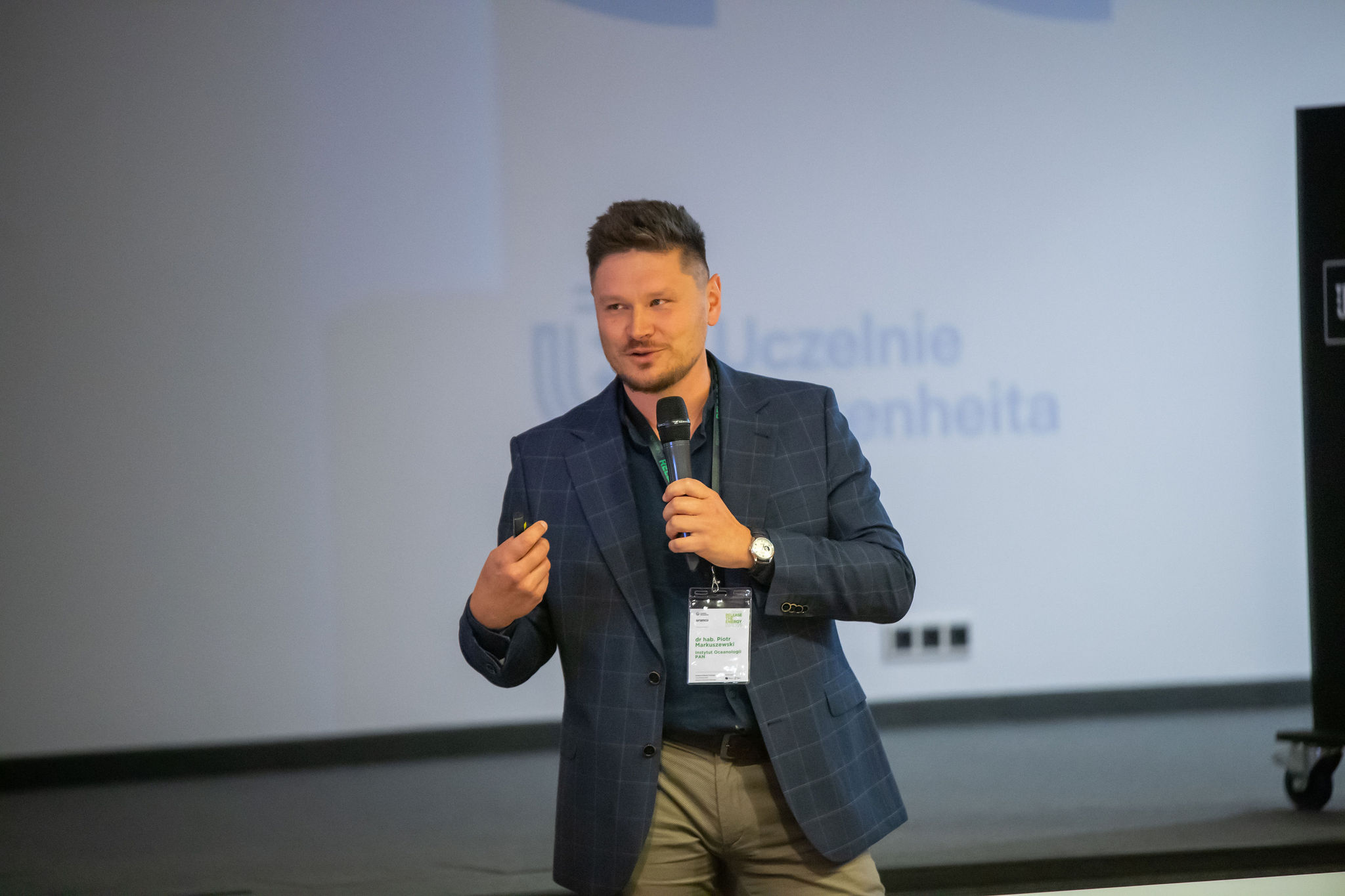
Running in parallel was a poster session featuring the works of, for example: Dominika Browarczyk (“The energy of diversity. How relationships shape 21st-century education”), Anastasia Kizian (“Change begins with you”), Zofia Kaczmarczyk (“The impact of offshore wind farms on Baltic Sea ecosystems in the context of Pomerania’s energy transition”), Grzegorz Baranowski and Maciej Moroz (“Sodium borohydride as a chemical hydrogen storage medium: biomass-based catalysts for hydrogen generation via sodium borohydride hydrolysis”) and Dawid Falkowski (“Safe-by-design developement of solid oxide electrolyzer cell anodes through a data-driven approach combining quantum simulations with machine learning”).
The final item on the conference agenda was the announcement of the jury’s verdict and the presentation of awards sponsored by the conference partner, Aramco Europe. The prize for the Best Presentation, worth PLN 2,000, was awarded to Filip Kaszubowski for his talk titled “Renewables are breaking records, but bills keep rising. How to reduce the costs of the energy transition”.
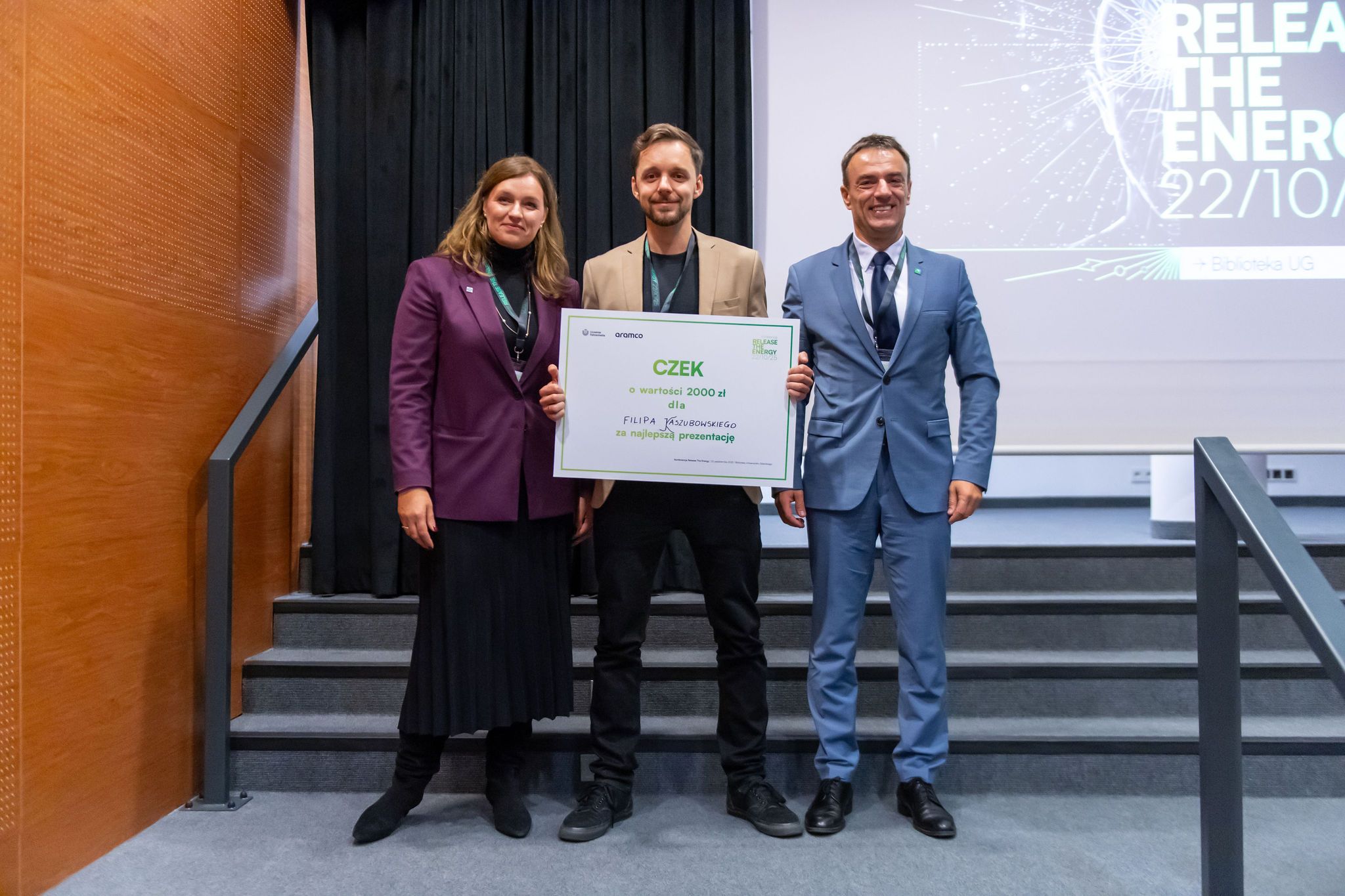
The jury also recognized the Best Poster, which explored the use of sodium borohydride as a chemical hydrogen storage medium. Its authors – Grzegorz Baranowski and Maciej Moroz – received a prize of PLN 1,000.
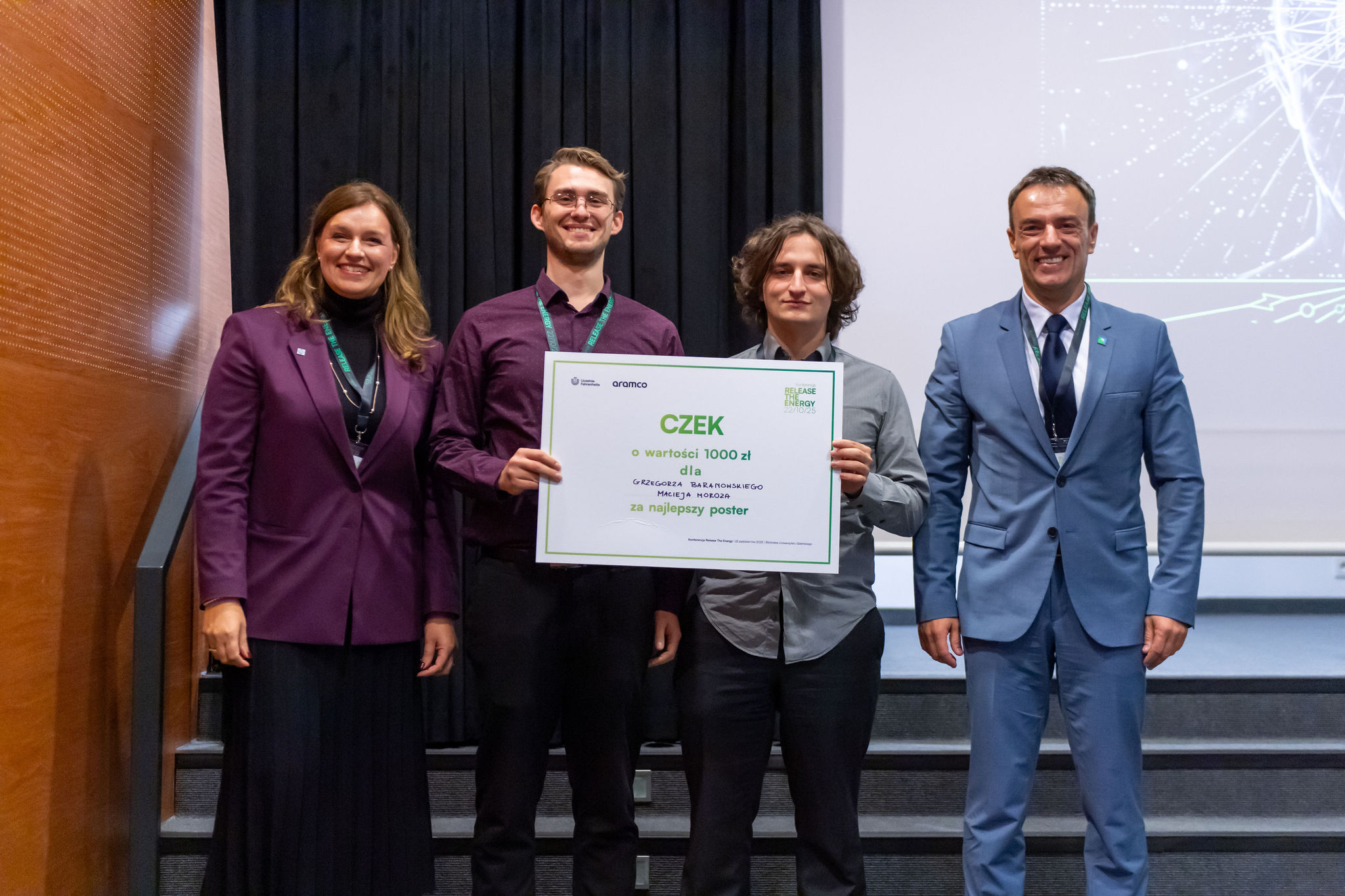
The event was a testament to the young generation’s commitment to shaping the future of energy. The organising committee included the following students: Dominika Głogowska and Katarzyna Ronowska of the Medical University of Gdańsk; Alicja Szostak, Sebastian Parzych, Kinga Hiszpańska, and Artur Żeleźnik of the Gdańsk University of Technology; as well as Malwina Brzezińska and Dawid Powideł of the University of Gdańsk.
The conference was made possible through collaboration with Aramco Europe and the Pomeranian Special Economic Zone. The conference marked an important step toward building a space for creative exchange and innovation – one in which students played a central role in both organising and delivering the event.
fot. Gregmar
